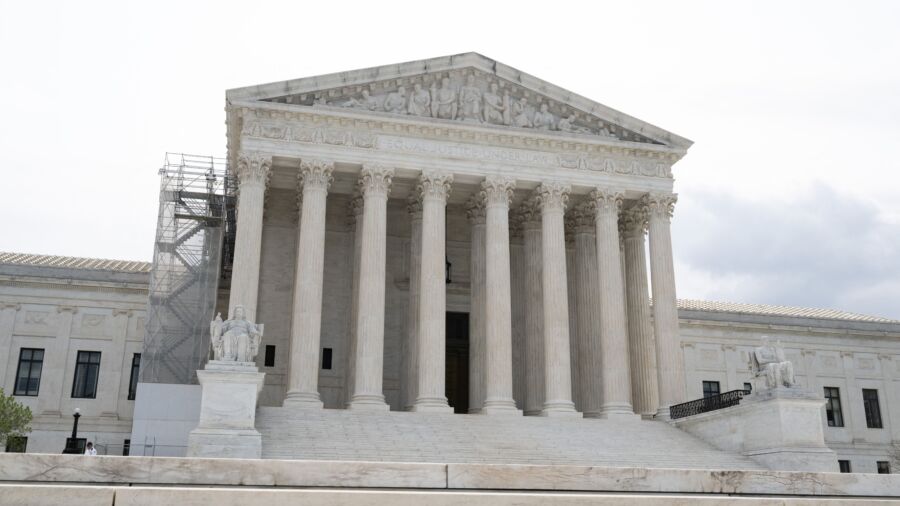The U.S. Supreme Court ruled 6–3 against North Carolina Republicans who argued that state legislatures have sweeping authority to make the rules for federal elections in the states without interference from the courts.
At issue is the once-obscure independent state legislature doctrine, under which Republicans argue that the Constitution has always directly authorized state legislatures alone to make rules for the conduct of federal elections in their respective states.
Democrats say this doctrine is a fringe conservative legal theory that could endanger voting rights, enable extreme partisan gerrymandering in the redistricting process, and cause upheaval in election administration.
Conservatives point to two key clauses in the U.S. Constitution that lay out the rules governing federal elections in the states.
The Elections Clause in Article 1 states, “The times, places and manner of holding elections for senators and representatives, shall be prescribed in each state by the legislature thereof.”
The Presidential Electors Clause in Article 2 gives each state the power to appoint presidential electors “in such manner as the legislature thereof may direct.”
But the Court rejected the doctrine, finding that the Elections Clause does not vest exclusive, independent authority in state legislatures to set the rules regarding federal elections.
The majority opinion (pdf) in Moore v. Harper (court file 21-1271) was written by Chief Justice John Roberts, a member of the court’s conservative bloc.
Conservative Justices Brett Kavanaugh and Amy Coney Barrett joined the majority opinion.
All three liberal justices—Sonia Sotomayor, Elena Kagan, and Ketanji Brown Jackson—also joined the opinion.
Conservative Justices Clarence Thomas and Neil Gorsuch dissented from the majority opinion. Justice Samuel Alito joined the dissenting opinion in part.
“State courts retain the authority to apply state constitutional restraints when legislatures act under the power conferred upon them by the Elections Clause,” Roberts wrote for the Court.
“But federal courts must not abandon their own duty to exercise judicial review,” the chief justice continued.
“In interpreting state law in this area, state courts may not so exceed the bounds of ordinary judicial review as to unconstitutionally intrude upon the role specifically reserved to state legislatures by Article I, Section 4, of the Federal Constitution,” a reference to the Elections Clause.
The decision came after North Carolina Republicans told the nation’s highest court during oral arguments on Dec. 7, 2022, that the U.S. Constitution gives state legislatures an exclusive role to make the rules for presidential and congressional elections without interference from the courts.
When he launched the appeal, Tim Moore, a Republican who is the Speaker of the North Carolina House of Representatives, said the Constitution is “crystal clear: State legislatures are responsible for drawing congressional maps, not state court judges and certainly not with the aid of partisan political operatives.”
But while the justices in Washington were deliberating Moore v. Harper, on Feb. 3, the formerly Democrat-dominated Supreme Court of North Carolina, with a newly seated Republican majority decided to rehear the underlying case, known in that forum as Harper v. Hall.
That court then reversed its prior ruling and held on April 28 that the General Assembly—not judges—has sole authority over the redistricting process.
The state court’s majority opinion said that there is “no judicially manageable standard by which to adjudicate partisan gerrymandering claims” and that courts “are not intended to meddle in policy matters.”
In light of the state court ruling, the U.S. Supreme Court asked lawyers for the parties to file supplemental briefs advising the justices on how to proceed.
Moore’s side urged the court to move forward and issue an opinion, while the Biden administration advised the Court to dismiss the case as moot.
This is a developing story. This article will be updated.
From The Epoch Times


